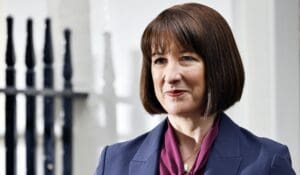
Chancellor Rachel Reeves has signalled that her 26 November Budget will ask more Britons to shoulder the burden of repairing the nation’s public finances — even if that means breaking Labour’s manifesto pledge not to raise income tax.
In a speech this week, Reeves warned that “hard choices” were unavoidable if Britain was to protect the NHS, reduce national debt and keep inflation under control. Her language marked a shift from earlier assurances that only those with the “broadest shoulders” would face higher taxes.
“If we are to build the future of Britain together, we will all have to contribute,” she said. “When that requires hard choices, we will act guided by the interests of working people.”
While the Chancellor maintained that fairness would underpin her fiscal plans, her remarks were widely interpreted in Westminster as preparing voters for a broader tax rise that could affect millions of middle-income workers.
At the heart of the political tension lies the question of how Labour defines “working people” — a term that may exclude much of the upper-middle-income bracket. Treasury insiders suggest the government considers those earning up to £45,000–£46,000 a year as “working people”.
That would leave roughly one-third of UK earners outside the protected group, potentially exposing professionals such as paramedics, teachers, software developers, and vets to higher income tax or national insurance contributions.
Data from the Office for National Statistics (ONS) shows that around 40% of male employees and 20% of female employees earn above £45,000. In London, where the median full-time salary stands at nearly £50,000, the proportion is significantly higher — meaning the capital’s workforce could face the steepest hit.
Ironically, Labour’s own inflation-busting public sector pay awards could see the Chancellor give with one hand and take with the other. NHS pay scales show that senior paramedics, speech and language therapists, and school nurses now earn above the proposed threshold.
Similarly, the National Education Union estimates that nearly all school leaders and senior teachers fall within the bracket likely to face higher tax. Years of frozen income tax thresholds — known as fiscal drag — have already pushed many of these workers into higher bands.
Britain’s finances have become increasingly reliant on a small pool of top-rate taxpayers. According to HMRC projections, 1.2 million people earning above £125,140 — just 3% of all income-tax payers — contribute around 40% of total income tax receipts.
Income tax now raises more than £300 billion annually, making it the government’s single largest revenue stream. Yet, as tax policy experts point out, Britain’s average worker still pays less tax on earnings than counterparts in most major European economies.
“The UK system has become top-heavy,” said Chris Sanger, head of tax policy at EY. “If you increase rates for those with the highest incomes, you risk losing mobility and, ultimately, revenue. In a post-pandemic world where remote work is common, the wealthy can relocate more easily than ever.”
The political risk for Labour is that a tax rise on higher earners could alienate the very middle-class voters who helped deliver its 2024 election victory. YouGov polling shows that households earning over £50,000 were disproportionately likely to vote Labour, while Reform’s support was strongest among lower-income groups and Conservative voters skewed older and retired.
If Reeves presses ahead, she faces a delicate balancing act: funding the public services Labour has promised to revive, while avoiding a backlash from the professionals and entrepreneurs who underpin Britain’s tax base.
As one City economist put it: “Reeves is walking a fiscal tightrope — between fairness and flight risk. The more she taxes those who can move, the less they’ll stay to pay.”
Read more:
Labour risks breaking tax pledge as Rachel Reeves targets higher earners in autumn Budget
